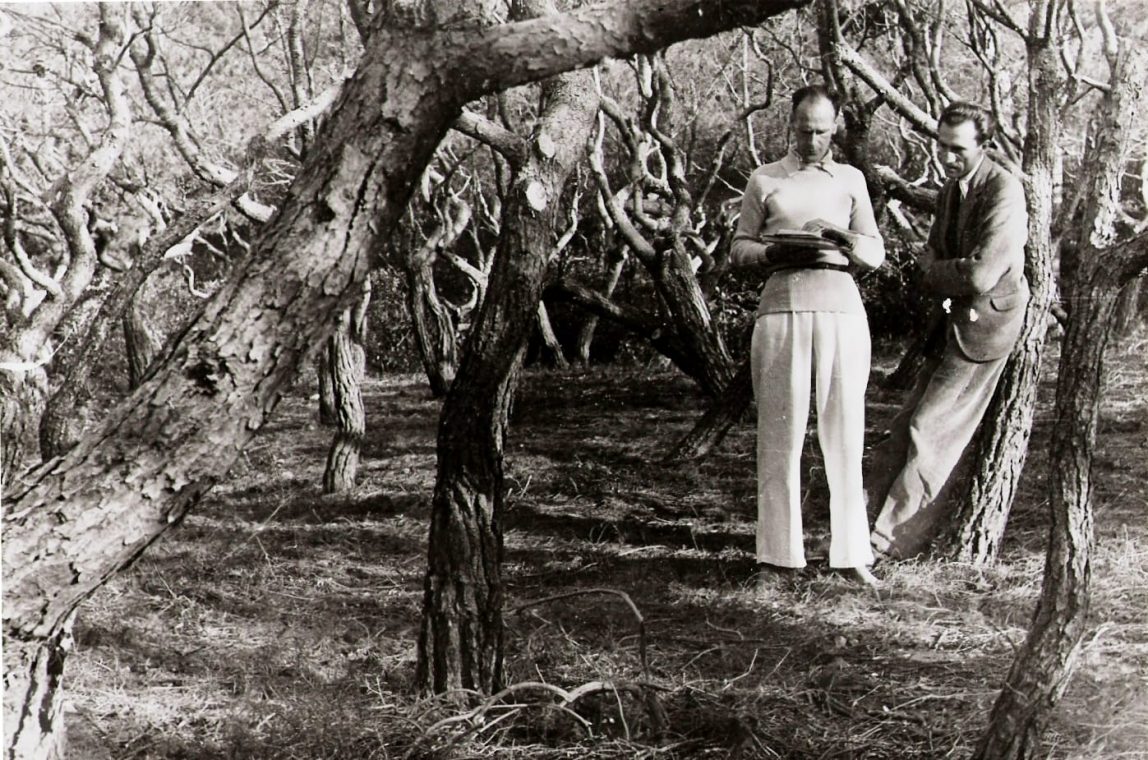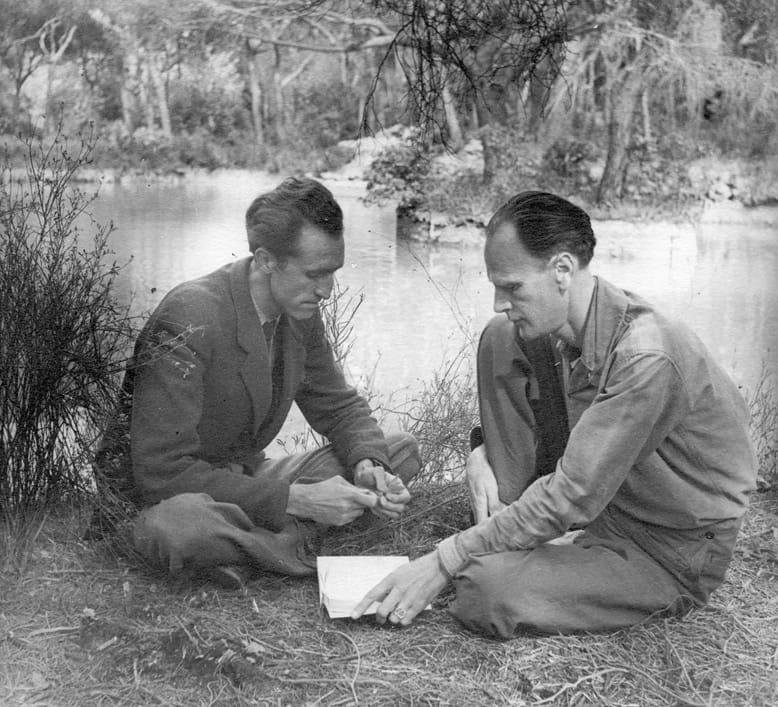An unfortunate fate, marked by corruption and war years, but filled with thirst for light. Lanza del Vasto took under his wing this disordered personality and made him a real writer.

The great friendship between Lanza del Vasto and Luc Dietrich is related by Lanza in a moving text, intitled Histoire d’une amitié. We learn how they met in Paris in 1932 and we guess why Luc, younger than Lanza, found within him the light and the life direction he lacked.
Actually, because of a painful childhood and a complex psychology, Luc was a hurt but very endearing character. His talents as a writer had to be confirmed. Lanza encouraged, guided him and tried, without much success, to rescue his friend from the influences of the disreputable world he was involved in.
For twelve years, the two men have maintained an intense literary friendship and regular correspondence. In 1942, they wrote together the Dialogue de l’amitié, a high-level conversation about style and century. Luc died in 1944 after an Allied bombing.
The major books were published under Luc Dietrich’s name (Le bonheur des tristes, L’Apprentissage de la ville, L’injuste grandeur) and revised by Lanza del Vasto, so much that they can be considered their common work; but the latter stepped aside in favor of his protégé.
We remain surprised by the contrast between the two men, the one struggling with the demons of the century and the other being free and detached, or rather working vigorously to free himself from our common chains. But beyond their differences, a deep generosity encouraged Lanza to support Luc’s destiny, seeking to understand him rather than judge him. He probably recognized in him his own dark side and his hidden weakness.

Read also :
- the presentation of Frédéric Richaud’s book, Luc Dietrich (Grasset, 2011)
- the presentation of Luc Dietrich by Gil Pressnitzer,
- Two texts by André Lombard about Luc’s friendship with the painter Serge Fiorio : L'ami Luc Dietrich (2015) and Dietrich-Fiorio (2018).
